In the media is a fortnightly round-up of features written by, about or containing female writers that have appeared during the previous fortnight and I think are insightful, interesting and/or thought provoking. Linking to them is not necessarily a sign that I agree with everything that’s said but it’s definitely an indication that they’ve made me think. I’m using the term ‘media’ to include social media, so links to blog posts as well as as traditional media are likely and the categories used are a guide, not definitives.

Photograph by Murdo MacLeod
Women have been dominating the prize wins for the past fortnight. Hollie McNish won the Ted Hughes Prize and Kiran Millwood Hargrave won the Waterstones Children’s Book Prize with The Girl of Ink and Stars.
While The Baileys Women’s Prize for Fiction shortlist was announced. Rebecca May Johnson writes ‘Notes on . . . the Baileys Women’s Prize‘ (and reading women more generally) in the Financial Times. There are interviews with several of the longlisted writers on the prize’s site: Madeleine Thien, Naomi Alderman, Linda Grant, Yewande Omotoso, Heather O’Neill, Fiona Melrose, Eimear McBride, Emma Flint.

The best of the rest:
On or about books/writers/language:
- Claire Armistead, ‘Is Hilary Mantel’s view of historical fiction out of date?‘ in The Guardian
- Amy Bernhard, ‘Writing Behind Walls‘ on Catapult
- Catherine La Sota, ‘Reading Across America: A Scene Grows in Queens‘ on Literary Hub
- Alicia Maria Meier, ‘Marta Rojals’s “The Faithful,” and the American JASP‘ on Words Without Borders
- Megan Hunter, ‘Fiction to see the world through‘ in The TLS
- Vincent Scarpa, ‘The Uncanny Magic of Joy Williams, in a Single Paragraph‘ on Literary Hub
- Laura Waddell, ‘Is it time for a Handmaid’s Tale sequel, to reckon with the Trump era?‘ in The Guardian
- Aaron Bady, ‘Has Imbolo Mbue Written the Great American Novel?‘ on Literary Hub
- Mallory Soto, ‘Laura Kinney, Literary Fiction, and Coming-of-Age‘ on Bookriot
- Emily Temple, ‘A Brief History of Robots‘ on Literary Hub
- Terri Kapsalis, ‘Hysteria, Witches, and the Wandering Uterus: A Brief History‘ on Literary Hub
- Ayana Mathis, ‘On Impractical Urges‘ in Guernica
- Sophie Hughes, ‘Ferrante Fever and Knausgaard nuts‘ in The TLS
- Amelia Ayrelan Iuvino, ‘What Does it Mean to Set Your Novel at Harvard?‘ on Literary Hub
- Margaret Atwood, ‘on What ‘The Handmaid’s Tale’ Means in the Age of Trump‘ in The New York Times
- Edmund Gordon, ‘In Which Angela Carter Gives No Fucks‘ on Literary Hub
- Sophie Gilbert, ‘The Dark Morality of Fairy-Tale Animal Brides‘ on The Atlantic
- Fiona Taylor, ‘The Handmaid’s Tale: The Lost Pence Prequel‘ in The New Yorker
- Sarah Blackwood, ‘Parenting by the Books: ‘Little Women’‘ on The Hairpin
- Emily Temple, ‘Life Advice from Adrienne Rich‘ on Literary Hub
- Danika Ellis, ‘Let’s Talk About Star-Crossed: Why We Need Bisexual Kids Books, Backlash or Not‘ on Bookriot
- Naomi Alderman, ‘Dystopian dreams: how feminist science fiction predicted the future‘ in The Guardian
- Jami Attenberg, ‘Stop Reading My Fiction as the Story of My Life‘ in The New York Times
- Salena Godden, ‘How I Did It‘ on The Poetry School
- Scarlett Thomas, ‘Why I was wrong about children’s fiction‘ in The Guardian
- Ellen Feldman, ‘A Brief Literary History of Birth Control‘ on Literary Hub
- Laura Kaye, ‘on portraying England from a foreigner’s perspective‘ on the Literary Sofa
- Valerie Derbyshire, ‘Beauty and the Beast was originally a feminist fable disguised as marriage guidance‘ on The Conversation
- Bidisha, ‘The great contradiction‘ in The TLS
- Teri Vlassopoulos, ‘When I Think About Giving Up Writing‘ on Catapult
- Alexandra Alter, ‘New Crop of Young Adult Novels Explores Race and Police Brutality‘ in The New York Times
- Jami Attenberg, ‘Topography of a Novel: All Grown Up‘ on Blunderbuss
- Kathryn Heyman, ‘Fairytales are not just harmless, innocent fun. They need to be interrogated‘ in The Guardian
- Susan Braudy, ‘‘Sisters in Misery’: What It Was Like to Interview Joan Didion at Home in 1977‘ on Jezebel

Personal essays/memoir:
- Kim McLarin, ‘Outrunning Eshu: On Finally Seeking Treatment for Depression‘ on Literary Hub
- Marissa Bate, ‘Adventures aren’t always on the other side of the world‘ on The Pool
- Daisy Buchanan, ‘I’ve been an agony aunt since I could talk‘ in The Guardian
- Laura Turner, ‘How Do You Inherit Anxiety?‘ on Catapult
- Meg Elison, ‘El Hugé‘ on Catapult
- Melissa Febos, ‘Playing Cupid for a Gay Friend on a (Mostly) Straight Cruise‘ in The New York Times
- Ethel Rohan, ‘Bringing It Back Up‘ on The Hairpin
- Sinéad Gleeson, ‘Your Chroma‘ on RTÉ
- Melinda Salisbury, ‘Was my grandmother a witch?‘ in The Guardian
- Amy Jo Burns, ‘Writing, Risk, and Moonshine‘ on Electric Literature
- Dionne Ford, ‘Don’t Call Slaves “Immigrants”‘ on Literary Hub
- Melissa Wyse, ‘Learning to Live Alone Through the Legacy of Mary Tyler Moore‘ in The Rumpus
- Whitney Templeton, ‘The Evolution of a Trigger‘ on The Rumpus
- Elisabeth Fairfield Stokes, ‘Life and Breath: On Pregnancy and the Spirit World‘ on Catapult
- Gillian Jacobs, ‘I Can’t Have Enough Mothers‘ on Lenny
- Dina Nayeri, ‘How Love Ends: Scenes from a Refugee Hotel‘ on Electric Literature
- Maria Browning, ‘Doll in Shadow‘ on Guernica
- Xialou Guo, ‘Leaving the Village: on Traumatic Uprooting‘ on Literary Hub
- Alys Fowler, ‘There is no such thing as coming out: it’s a daily negotiation‘ in The Guardian
- Eve Peyser, ‘Trump, Trolls, and Rediscovering My Jewish Identity‘ on Vice
- Porochista Khakpour, ‘Why this Persian New Year is different‘ on CNN
- Ashley Ford, ‘Seeing My Body with Fresh Eyes‘ on Cup of Jo
- Laurie Frankel, ‘We adopted by choice not necessity‘ in The Guardian
- Ella Wilson, ‘Take Care: Mothers, Daughters, and Inheriting Self-Hatred‘ on Catapult
- Daisy Buchanan, ‘I am 32, successful and I am in therapy. This is why‘ on The Pool

Feminism:
- Helen Charman, ‘Literary Representations of Maternity‘ on Women Are Boring
- Heather Kirn Lanier, ‘Superbabies Don’t Cry‘ on Vela
- Jia Tolentino, ‘The Infantilizing Ways We Talk About Women’s Ambition‘ in The New Yorker
- Leslie Jamison, ‘In the Shadow of a Fairy Tale‘ in The New York Times
- Rebecca Traister, ‘Of Course Donald Trump Doesn’t Think Bill O’Reilly Did Anything Wrong‘ in The Cut
- Salimah Perkins, ‘Choosing Sides‘ on Queen Mob’s Tea House
- Minda Honey, ‘Women of Color in Wide Open Spaces‘ on Longreads
- Jess Zimmerman, ‘Why Is Male Anger So Threatening?‘ in Dame
- Jessica Valenti, ‘Mike Pence doesn’t eat alone with women. That speaks volumes‘ in The Guardian
- Phoebe Maltz Bovy, ‘It’s time to drop the vagina as a protest symbol‘ in The Washington Post
- Morgan Jerkins, ‘How America Fails Black Girls‘ in The New York Times
- Sandra Newman, ‘Why men rape‘ on Aeon
- Mia Violet, ‘Taking Selfies As A Form Of Self Care‘ on Femsplain
- Brittney McNamara, ‘White Women Are Less Likely to Protect Black Women From Sexual Assault, Study Finds‘ in Teen Vogue
- Roe McDermott, ‘There is no perfect victim. And there is no perfect way to respond to sexual assault‘ on The Pool
- Morgan M Page, ‘Trans Women Shouldn’t Have To Constantly Defend Their Own Womanhood‘ on Buzzfeed
- Cathy Young, ‘The Other Women’s Movement‘ on Foreign Policy
- David Smith, ‘Chimamanda Ngozi Adichie on transgender row: “I have nothing to apologise for”‘ in The Guardian

Society and Politics:
- Jeanette Winterson, ‘We need to be more imaginative about modern marriage‘ in The Guardian
- Taffy Brodesser-Akner, ‘The High Price of Leaving Ultra-Orthodox Life‘ in the New York Times
- Monica Mark, ‘Poor, Gifted and Black‘ on Buzzfeed
- Diana Darke, ‘A sarin attack and a swing in US policy‘ in The TLS
- Carla Bruce-Eddings, ‘Am I Going to Have Another Baby?‘ in The Cut
- Emily Holleman, ‘Is Hillary Clinton a Modern-Day Cleopatra?‘ on Literary Hub
- Hannah Goldfeld, ‘The Cool Brooklyn Dentist Who Wants Your Teeth to Look As Nice As Her Instagram Feed‘ in The Cut
- Suzanne Moore, ‘Labour is weak and immoral – as shown by Livingstone’s refusal to apologise‘ in The Guardian
- Alana Semuels, ‘Why It’s So Hard to Get Ahead in the South‘ in The Atlantic
- Zara Rahman, ‘Where Are You Really From‘ on Real Life
- Jeanne de Montbaston, ‘My Daughter’s Birth‘ on Reading Medieval Books
- Linda Besner, ‘Sleep Country‘ on Real Life
- Hilary Mantel, ‘The Tories will never confess to their social wrecking age‘ in The New Statesman
- Alana Massey, ‘Broken Links‘ on Aeon
- Sim Bajwa, ‘Multiculturalism hasn’t failed – but the rhetoric surrounding immigration has become poisonous‘ on The Pool
- Elena Passarello, ‘The Sense of an Endling‘ on Longreads
- Lisa Miller, ‘John Hinckley Left the Mental Hospital Seven Months Ago‘ in New York Magazine
Film, Television, Music, Art, Fashion and Sport:
- Jonatha Kottler, ‘Shopping at size 24: ‘The sales assistant shakes her head at me’‘ in The Guardian
- Caitlin McDonnell, ‘On Homeland‘s Carrie Mathison, Mental Illness, & the “Ugly Cry”‘ on Weird Sister
- Sophie Atkinson, ‘Feminism and the Pursuit of Relentless Happiness‘ on Electric Literature
- Christine Vines, ‘The Damage of ‘Crazy Ex-Girlfriend’‘ on Electric Literature
- Laura McKeon, ‘Dressing Like Ladies‘ on Hazlitt
- Rachel Klein, ‘Smurfette’s Roots‘ on Hazlitt
- Lauren Schwartzberg, ‘Why Millennial Pink Refuses to Go Away‘ in The Cut
- Amy Wallace, ‘The Hollywood Exec and the Hand Transplant That Changed His Life‘ in Los Angeles Magazine
- Catherine Love, ‘Offside: the shocking moment female footballers were banned for 50 years‘ in The Guardian

The interviews/profiles:
- Durga Chew-Bose on Hazlitt
- Edna O’Brien on Kenyan Review
- Eleni Sikelianos in Numeró Cinq
- Sarah Waters in The Guardian
- Ursula K. Le Guin on Electric Literature
- Claire Fuller on Reading Women
- Julie Buntin on Electric Literature
- Ariel Levy on Electric Literature and The Fifth Sense
- Angie Thomas in The Guardian and The Cut
- Deb Olin Unferth on Electric Literature
- Elena Favilli and Francesca Cavallo in The Bookseller
- Valeria Luiselli in Brooklyn
- Aura Xilonen on Electric Literature
- Ana Marie Cox on Literary Hub
- Wioletta Greg and Eliza Marciniak on The Man Booker Prize
- Fay Weldon in The Guardian
- Brit Bennett on The Millions
- Marina Benjamin on Slate
- Maggie Nelson in The Cut
- Katie Kitamura in The LA Times
- Megan McDowell on Literary Hub
- Emma Richler on Maisonneuve
- Eve Ainsworth on Bookriot
- Anna Journey on Electric Literature
- Eileen Myles in The Irish Times
- Eula Bliss in The Los Angeles Review of Books
- Khadijah Queen on The Rumpus
- Emily Robbins on Hazlitt
- Helen McClory on Burning House Press
- Lidia Yuknavitch on Pen America
- Patty Yumi Cottrell on Literary Hub
- Nell Stevens in Vogue

The regular columnists:
- Ijeoma Oluo on The Establishment
- Lucy Mangan in Stylist
- Roxane Gay in The Guardian US
- Caitlin Moran in The Times
- Ella Risbridger in The Pool
- Sali Hughes in The Pool
- Bim Adewunmi in The Guardian
- Sophie Heawood in The Guardian
- Eva Wiseman in The Observer
- Tracey Thorn in The New Statesman
- Chimene Suleyman and Maya Goodfellow on Media Diversified
- Josie Pickens on Ebony
- Lizzy Kremer on Publishing for Humans
- Juno Dawson in Glamour
- Louise O’Neill in the Irish Examiner
- Jendella Benson on Media Diversified
- Lola Okolosie in The Guardian
- Sarah Gerard, ‘Mouthful‘ on Hazlitt
- Books by Women We’d Love to See in English on Literary Hub

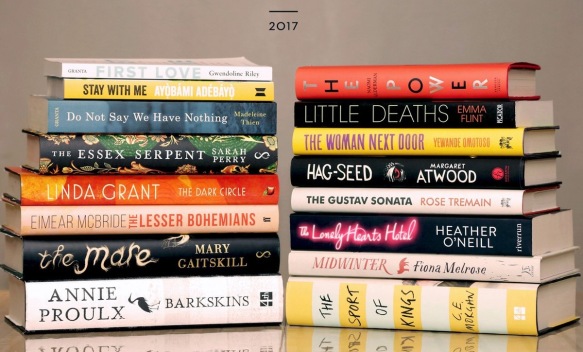













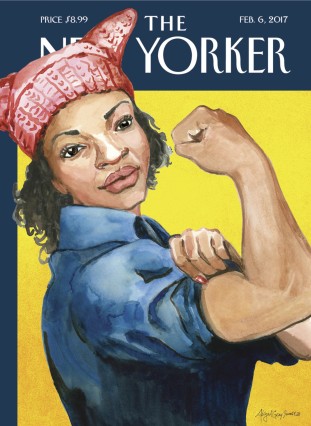




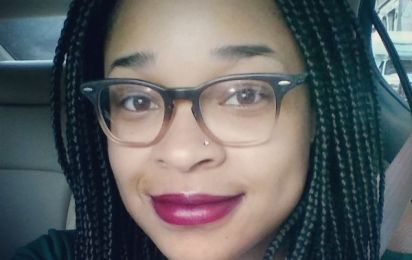
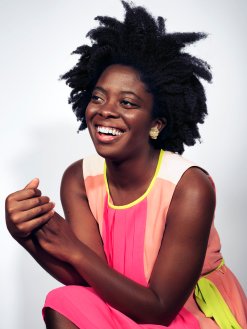



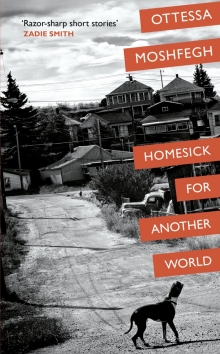

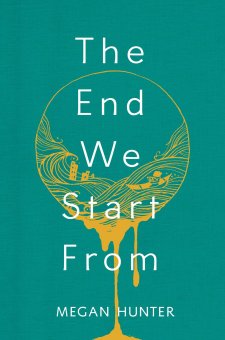


 Take Courage: Anne Brontë and the Art of Life – Samantha Ellis
Take Courage: Anne Brontë and the Art of Life – Samantha Ellis Women – Roxane Gay
Women – Roxane Gay
 See What I Have Done – Sarah Schmidt
See What I Have Done – Sarah Schmidt